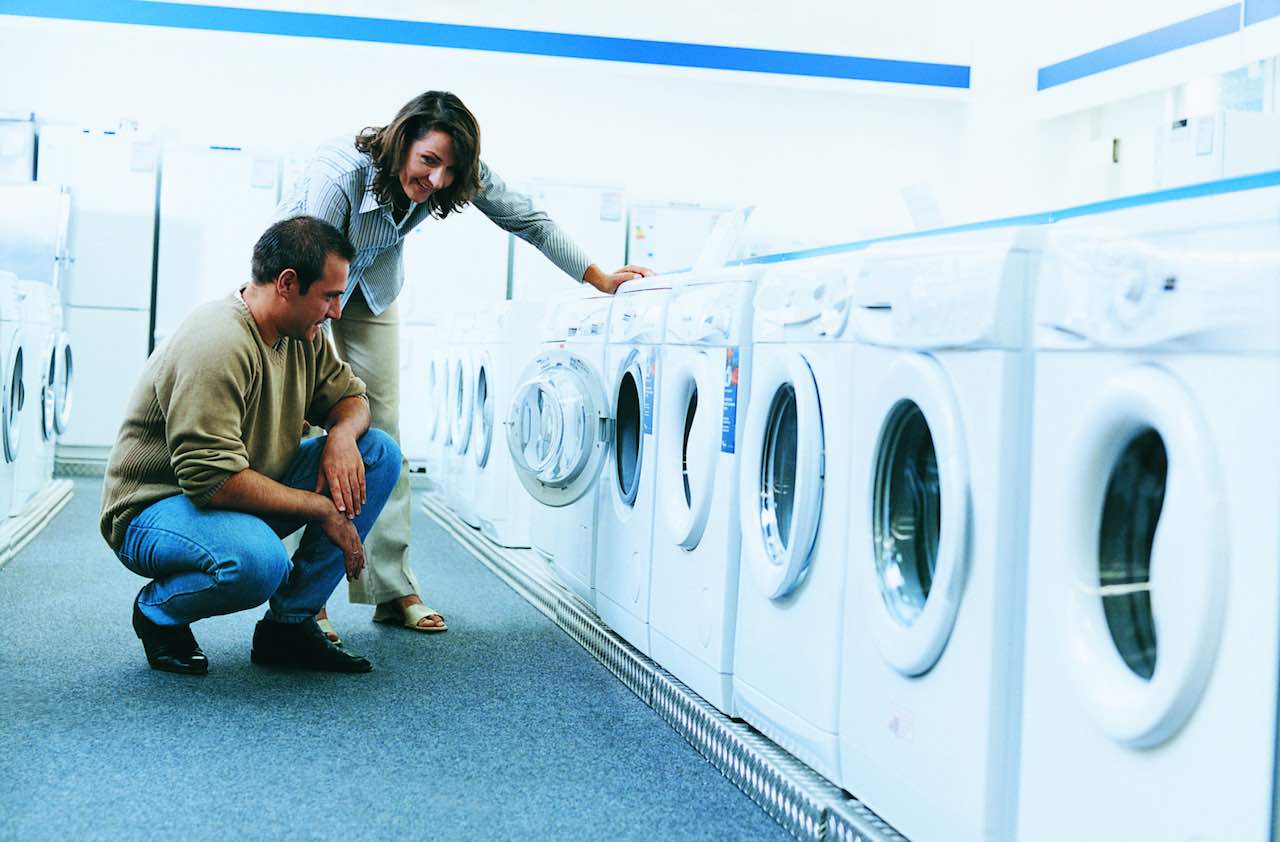7 Things You Must Know About Warranties on Appliances
Should you pay for extended protection on your home appliances?


Profit and prosper with the best of Kiplinger's advice on investing, taxes, retirement, personal finance and much more. Delivered daily. Enter your email in the box and click Sign Me Up.
You are now subscribed
Your newsletter sign-up was successful
Want to add more newsletters?

Delivered daily
Kiplinger Today
Profit and prosper with the best of Kiplinger's advice on investing, taxes, retirement, personal finance and much more delivered daily. Smart money moves start here.

Sent five days a week
Kiplinger A Step Ahead
Get practical help to make better financial decisions in your everyday life, from spending to savings on top deals.

Delivered daily
Kiplinger Closing Bell
Get today's biggest financial and investing headlines delivered to your inbox every day the U.S. stock market is open.

Sent twice a week
Kiplinger Adviser Intel
Financial pros across the country share best practices and fresh tactics to preserve and grow your wealth.

Delivered weekly
Kiplinger Tax Tips
Trim your federal and state tax bills with practical tax-planning and tax-cutting strategies.

Sent twice a week
Kiplinger Retirement Tips
Your twice-a-week guide to planning and enjoying a financially secure and richly rewarding retirement

Sent bimonthly.
Kiplinger Adviser Angle
Insights for advisers, wealth managers and other financial professionals.

Sent twice a week
Kiplinger Investing Weekly
Your twice-a-week roundup of promising stocks, funds, companies and industries you should consider, ones you should avoid, and why.

Sent weekly for six weeks
Kiplinger Invest for Retirement
Your step-by-step six-part series on how to invest for retirement, from devising a successful strategy to exactly which investments to choose.
1. Yikes! Your new stove is electronic.
And you’re afraid of a costly repair bill after the manufacturer’s warranty expires in 12 months. Buying an extended warranty that covers five years generally adds 10% to 20% to the cost of the item, says Tim Meenan, the executive director of the Service Contract Industry Council.
2. You could play the odds.
Check the failure rate of the particular brand and model you’re buying, and find out about other consumers’ experiences. “The vast majority of major home appliances don’t break,” says Celia Lehrman, deputy home editor for Consumer Reports, which continues to be critical of extended warranties. In its annual survey, only 17% of gas ranges needed repairs, with a median repair cost of $187. Refrigerators with bottom freezers needed repairs 21% of the time, with a median repair cost of $216; 31% of side-by-side refrigerators needed repairs, with a median repair cost of $194. Even if you have a glitch, it may be diagnosed without summoning a technician by reporting a code or using a smartphone app.
3. You may already be covered.
Many Visa, MasterCard, Discover and American Express cards double a manufacturer’s warranty of up to 12 months, and cover repairs or replacement up to $10,000 for products purchased with their cards, says Matt Schulz, of CreditCards.com (see the list on its website for details). Hold on to your credit card statement as well as the original receipt.
From just $107.88 $24.99 for Kiplinger Personal Finance
Become a smarter, better informed investor. Subscribe from just $107.88 $24.99, plus get up to 4 Special Issues

Sign up for Kiplinger’s Free Newsletters
Profit and prosper with the best of expert advice on investing, taxes, retirement, personal finance and more - straight to your e-mail.
Profit and prosper with the best of expert advice - straight to your e-mail.
4. Ask who does the work.
Sears uses its own technicians, but most other warranty programs contract with local repair people. “Whenever I look at highly rated repair businesses, none of them participate in these programs,” says Kevin Brasler, executive editor of Checkbook.org, which rates service providers.
5. Check out the upstarts.
Several new online providers, such as Protect Your Bubble, SquareTrade and Upsie, charge less for extended warranties. SquareTrade’s five-year warranty on a $1,700 refrigerator is $299—less than half the cost of a retailer’s extended warranty. SquareTrade also just started offering a program in conjunction with Costco.com. Costco provides a two-year warranty for many products purchased in its stores or on its website. SquareTrade will extend the two-year warranty to five years for $100 for appliances costing from $1,000 to $2,000, and $120 for items costing more than $2,000.
6. You can change your mind.
Sears gives you up to 15 days after you buy an item to add its extended warranty. SquareTrade gives you up to 90 days after buying appliances through Costco.com. If you do get an extended warranty and change your mind, you usually have 30 to 45 days to cancel and get your money back.
7. Pay out of pocket.
Rather than spend money on an extended warranty, set aside cash in an emergency fund to cover repairs. If you never have problems, you’ll have savings to pay for the next generation of appliances.
Profit and prosper with the best of Kiplinger's advice on investing, taxes, retirement, personal finance and much more. Delivered daily. Enter your email in the box and click Sign Me Up.

As the "Ask Kim" columnist for Kiplinger's Personal Finance, Lankford receives hundreds of personal finance questions from readers every month. She is the author of Rescue Your Financial Life (McGraw-Hill, 2003), The Insurance Maze: How You Can Save Money on Insurance -- and Still Get the Coverage You Need (Kaplan, 2006), Kiplinger's Ask Kim for Money Smart Solutions (Kaplan, 2007) and The Kiplinger/BBB Personal Finance Guide for Military Families. She is frequently featured as a financial expert on television and radio, including NBC's Today Show, CNN, CNBC and National Public Radio.
-
 Nasdaq Leads a Rocky Risk-On Rally: Stock Market Today
Nasdaq Leads a Rocky Risk-On Rally: Stock Market TodayAnother worrying bout of late-session weakness couldn't take down the main equity indexes on Wednesday.
-
 Quiz: Do You Know How to Avoid the "Medigap Trap?"
Quiz: Do You Know How to Avoid the "Medigap Trap?"Quiz Test your basic knowledge of the "Medigap Trap" in our quick quiz.
-
 5 Top Tax-Efficient Mutual Funds for Smarter Investing
5 Top Tax-Efficient Mutual Funds for Smarter InvestingMutual funds are many things, but "tax-friendly" usually isn't one of them. These are the exceptions.
-
 Could Tax Savings Make a 50-Year Mortgage Worth It?
Could Tax Savings Make a 50-Year Mortgage Worth It?Buying a Home The 50-year mortgage proposal by Trump aims to address the housing affordability crisis with lower monthly mortgage payments. But what does that mean for your taxes?
-
 15 Cheapest Small Towns to Live In
15 Cheapest Small Towns to Live InThe cheapest small towns might not be for everyone, but their charms can make them the best places to live for plenty of folks.
-
 Before Buying Your First Home, Get These Three Ducks in a Row
Before Buying Your First Home, Get These Three Ducks in a RowWith mortgage rates higher than we're used to, making sure you can comfortably afford to buy your first home is more important than ever.
-
 How to Search For Foreclosures Near You: Best Websites for Listings
How to Search For Foreclosures Near You: Best Websites for ListingsMaking Your Money Last Searching for a foreclosed home? These top-rated foreclosure websites — including free, paid and government options — can help you find listings near you.
-
 Luxury Home Prices Rise as the Rich Dodge High Mortgage Rates
Luxury Home Prices Rise as the Rich Dodge High Mortgage RatesLuxury home prices rose 9% to the highest third-quarter level on record, Redfin reports, growing nearly three times faster than non-luxury prices.
-
 Four Tips for Renting Out Your Home on Airbnb
Four Tips for Renting Out Your Home on Airbnbreal estate Here's what you should know before listing your home on Airbnb.
-
 Is Home Insurance Required? Not Necessarily, But That Doesn't Mean You Should Drop It
Is Home Insurance Required? Not Necessarily, But That Doesn't Mean You Should Drop ItHome insurance is required by most mortgage lenders. But even if your home is paid off, does it make financial sense to drop coverage?
-
 5 Ways to Shop for a Low Mortgage Rate
5 Ways to Shop for a Low Mortgage RateBecoming a Homeowner Mortgage rates are high this year, but you can still find an affordable loan with these tips.